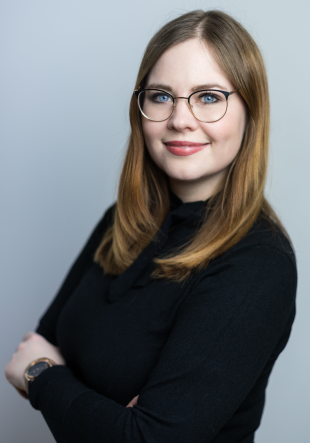Graduate Week 2024
The theme of this year's Graduate Week 2024 was "Power and Participation in Social Transformation Processes".
Organised as a hybrid cooperation event between the Graduate Centre of the Faculty of Arts and Humanities (GKW) and the Graduate Forum of the Faculty of Arts and Humanities (GFKW) from 21 to 24 May 2024, it gave all participants the opportunity to take part in interactive workshops and engage in a joint professional and informal exchange during lectures and networking opportunities .
The graduate conference combined lectures on the above-mentioned topic and the pitch format also enabled interdisciplinary discussion of theses from research contexts, far removed from a thematic focus.
(Kopie 4)

Theaim of the graduate conference was to discuss which forms of power and participation can be observed in social transformation processes and how these are expressed, based on the current research projects presented by graduates from the various disciplines at KW. After all, social structures and the forms of coexistence they create are subject to constant change and the opportunities for participation are unevenly distributed in this process.
The cross-faculty format enabled different scientific disciplines of cultural studies to be reflected, rethought and further developed in interdisciplinary lectures and discussions, with various panels enabling multi-perspectivity and covering the fields of "Energy as a resource of power", "Historical perspectives", "Higher education and science" and "Education".

Prof Dr Isabel Steinhart kicked off the Graduate Week with her keynote speech on "Micropolitical (power) games in universities". Based on the thesis that universities not only function as places of knowledge, but are also arenas of complex social dynamics and power constellations.
Prof. Dr Katrin B. Klingsieck offered a workshop on "Motivation and self-care in academic work". The focus of this ProLernen workshop, which was aimed in particular at doctoral candidates, was on difficult and challenging moments and phases in the qualification process. In these phases, it is important to personally explore whether self-motivation is (still) possible and, if so, how and how self-care can or even should play a role in this context. Katrin Klingsieck taught how to deal with these complex issues.
Dr Vera Limper's (First Generation Doctorate) workshop dealt with the effects of the presence or absence of an academic background on the access of students and doctoral candidates to a university career.
Theprogramme of the Graduate Week also included this year the Market of Opportunities with Networking Café. As the name implies, participants were not only able to network with each other here, but also get to know 15 different players in the university's graduate support programme and ask individual questions. Representatives from the Doctoral Committee KW, the Research Office, the Graduate Centre KW, the Graduate Forum KW, Equal Opportunities, the mentoring programmes, the Family Service Office, the Central Student Advisory Service, the Education and Science Union (GEW), the Competence Centre for Writing and ProLernen were all represented.

Following this year's Graduate Week, presentations from the conference will also be visualised in a publication by Herder Verlag.
We would like to express our sincere thanks to all those involved in the Graduate Week 2024, who provided insights into a wide range of (transdisciplinary) projects, contributed to the joint dialogue and took part in numerous fruitful discussions.
The next Graduate Week will take place from 10.06.2025 - 12.06.2025. Until then!

